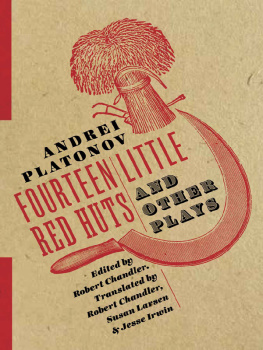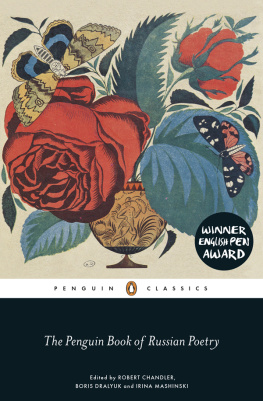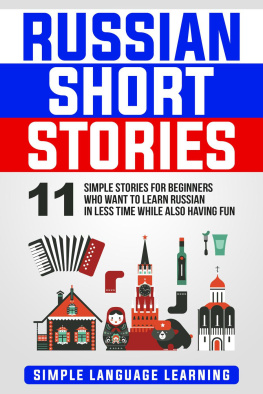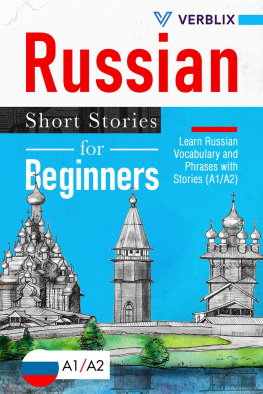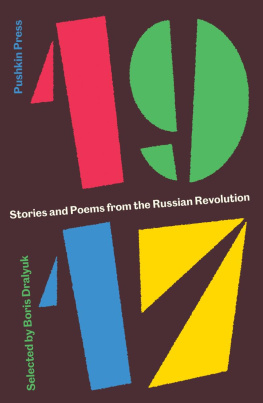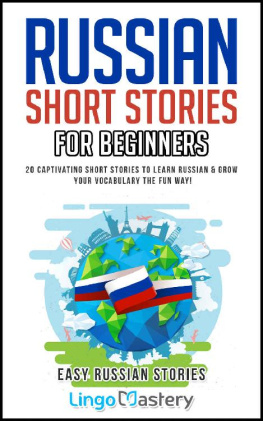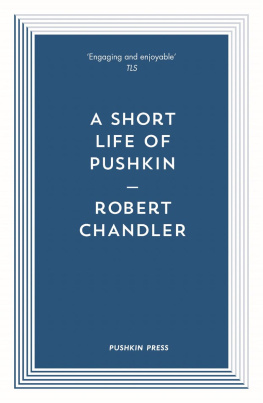Table of Contents
FOURTEEN LITTLE RED HUTS
AND OTHER PLAYS
RUSSIAN LIBRARY
The Russian Library at Columbia University Press publishes an expansive selection of Russian literature in English translation, concentrating on works previously unavailable in English and those ripe for new translations. Works of premodern, modern, and contemporary literature are featured, including recent writing. The series seeks to demonstrate the breadth, surprising variety, and global importance of the Russian literary tradition and includes not only novels but also short stories, plays, poetry, memoirs, creative nonfiction, and works of mixed or fluid genre.
Editorial Board:
Vsevolod Bagno
Dmitry Bak
Rosamund Bartlett
Caryl Emerson
Peter B. Kaufman
Mark Lipovetsky
Oliver Ready
Stephanie Sandler
Between Dog and Wolf by Sasha Sokolov, translated by Alexander Boguslawski
Strolls with Pushkin by Andrei Sinyavsky, translated by Catharine Theimer Nepomnyashchy and Slava I. Yastremski
Columbia University Press
Publishers Since 1893
New York Chichester, West Sussex
cup.columbia.edu
Published with the support of Read Russia, Inc., and the Institute of Literary Translation, Russia
Andrei Platonovs Russian texts copyright by Anton Martynenko, 2011
English publishing rights are acquired via FTM Agency, Ltd., Russia, 2016
Translation copyright 2017 Susan Larsen for The Hurdy-Gurdy; Robert Chandler for Fourteen Little Red Huts and additional scene, The Hurdy-Gurdy; Jesse Irwin for Grandmothers Little Hut
Introduction and notes copyright Robert Chandler
All rights reserved
EISBN 978-0-231-54353-8
Cataloging-in-Publication Data available from the Library of Congress
A Columbia University Press E-book.
CUP would be pleased to hear about your reading experience with this e-book at .
Cover design: Roberto de Vicq de Cumptich
Book design: Lisa Hamm
CONTENTS
Andrei Platonov (18991951) wrote novels, short stories, plays, and film scripts. He wrote mainly between the late 1920s and the mid-1940s, but he was subject to vicious criticism throughout his career, and much of his work was first published only several decades after his death. He has been acclaimed by many Russian writers and critics as the greatest Russian prose writer of the twentieth century, but he has yet to enjoy the international reputation that is his duein part, perhaps, because his idiosyncratic style makes him difficult to translate. He is also unusually difficult to categorize. His language is stunningly innovative, yet he had little in common with most modernists. He was almost certainly an atheist, yet his work is dense with religious symbolism and imbued with deep religious feeling. He was a passionate supporter of the 1917 Revolution and remained sympathetic to the dream that gave birth to it, yet few people have written more searingly of its disastrous consequences. And he worked in many different genres. His early Chevengur is a long, picaresque, sometimes surreal novel that deserves comparison with Don Quixote and Dead Souls. His late The Return, a short story chosen in 1999 by Penelope Fitzgerald as one of her three great Russian works of the last millennium, is a wise, tender, and entirely realistic evocation of family life, firmly embedded in a particular historical moment. His versions of traditional Russian magic taleshis last major publicationwere republished in countless Soviet school textbooks, often without acknowledgment of his authorship. And there are still aspects of his work that have hardly been explored at all. His six film scripts are almost unknown; his eight finished and two unfinished plays are still seldom staged, even in Russia. At least two of these plays, however, are masterpieces. The Hurdy-Gurdy (1930) and Fourteen Little Red Huts (1933) anticipate the work of Samuel Beckett and Eugene Ionesco. They are as bold in their political satire as Bertolt Brecht at his most biting. And they are also important as documents of historical witness. Along with the short novel The Foundation Pit, they constitute Platonovs most impassioned, and penetrating, response to Stalins assault on the Soviet peasantrythe catastrophes of the collectivization of agriculture (1930) and the ensuing Terror Famine (19321933).
2
Platonov was brought up on the outskirts of Voronezh, the main city of the Black Earth region. Born in 1899, he came of age with the Revolution, which he supported passionately. Between 1918 and 1921 he published numerous articles on political, philosophical, and scientific themes in the local press as well as a collection of poems, The Blue Depth. In 1921, however, shocked by the terrible drought and famine, he abandoned literature in order to work as a land reclamation expert. Being someone technically qualified, he wrote, I was unable to continue to engage in contemplative work such as literature. Unlike nearly all his colleagues, he wrote honestly about what he saw.
It is astonishing that Platonov dared to write such lines, even in a private notebook, at a time when the official press was reporting only ever greater success.
These journeys served as the inspiration for a number of works about collectivization and the Terror Famine. As well as The Foundation Pit and the short novels For Future Use and Sea of Youth, these include two film scripts and the two full-length plays in the present volume. None of these works was published in Platonovs lifetime except For Future Usewhich was immediately, and fiercely, criticized by Stalin himself. To a reader unversed in Soviet history, these works seem surreal. In reality, they contain barely an incident or passage of dialogue that does not directly relate to some real event or publication from these years. Platonovs focus is not on some private dream world but on a political and historical reality so extraordinary as to be barely credible.
3
The Soviet Union had adopted as its emblem the hammer, symbolizing the workers, and the sickle, symbolizing the peasants. It claimed to be a Workers and Peasants State, and to this day many people continue to take this claim at face value, failing to recognize the depth of the Bolsheviks hostility to the peasantry. Most Bolsheviks saw the peasants as little better than the petty bourgeoisie; many probably felt much the same as Maxim Gorky, whom Kornei Chukovsky records as saying on one occasion that the Russian peasant is our enemy, our enemy and on another as saying, Youll pardon my saying so, but the peasant is not yet human. Gorkys first sentence, at least, was accurate; the peasants whole way of life was indeed a threat to the Bolshevik project of a strong, centrally planned state.

